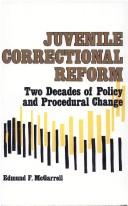| Listing 1 - 5 of 5 |
Sort by
|
Book
ISBN: 1613766769 9781613766774 1613766777 9781613766767 9781625344267 Year: 2019 Publisher: Amherst
Abstract | Keywords | Export | Availability | Bookmark
 Loading...
Loading...Choose an application
- Reference Manager
- EndNote
- RefWorks (Direct export to RefWorks)
"For eight years Keith Morton codirected a safe-space program for youth involved in gang or street violence in Providence, Rhode Island. Getting Out is a result of the innovative perspectives he developed as he worked alongside staff from a local nonviolence institute to help these young people make life-affirming choices. Rather than view their violence as pathological, Morton explains that gang members are victims of violence, and the trauma they have experienced leads them to choose violence as the most meaningful option available. To support young people as they "unlearned" violence and pursued nonviolent alternatives, he offered what he calls a "Youth Positive" approach that prioritizes healing over punishment and recognizes them as full human beings. Informed by deep personal connections with these youth, Morton contends that to help them, we need to change our question from "What is wrong with you?" to "What happened to you?"--Page 4 de la couverture.
Jeunes difficiles --- Jeunes délinquants --- Gangsters --- Ex-gangsters --- At-risk youth --- Juvenile delinquents --- Gang members --- Ex-gang members --- Services --- Rééducation --- Services for --- Rehabilitation --- United States.

ISBN: 1501731165 9781501731167 0801443784 9780801443787 9780801475313 0801475317 Year: 2006 Publisher: Ithaca, N.Y. ; London : Cornell University Press,
Abstract | Keywords | Export | Availability | Bookmark
 Loading...
Loading...Choose an application
- Reference Manager
- EndNote
- RefWorks (Direct export to RefWorks)
Most crimes of sexual violence are committed by people known to the victim-acquaintances and family members. Yet politicians and the media overemphasize predatory strangers when legislating against and reporting on sexual violence. In this book, Eric S. Janus goes far beyond sensational headlines to expose the reality of the laws designed to prevent sexual crimes. He shows that "sexual predator" laws, which have intense public and political support, are counterproductive.Janus contends that aggressive measures such as civil commitment and Megan's law, which are designed to restrain sex offenders before they can commit another crime, are bad policy and do little to actually reduce sexual violence. Further, these new laws make use of approaches such as preventive detention and actuarial profiling that violate important principles of liberty.Janus argues that to prevent sexual violence, policymakers must address the deep-seated societal problems that allow it to flourish. In addition to criminal sanctions, he endorses the specific efforts of some advocates, organizations, and social scientists to stop sexual violence by, for example, taking steps to change the attitudes and behaviors of school-age children and adolescents, improving public education, and promoting community treatment and supervision of previous offenders.Janus also warns that the principles underlying the predator laws may be the early harbingers of a "preventive state" in which the government casts wide nets of surveillance and intervenes to curtail liberty before crimes of any type occur. More than a critique of the status quo, this book discusses serious alternatives and how best to overcome the political obstacles to achieving rational policy.
Preventive detention --- Sex crimes --- Civil commitment of sex offenders --- Sex offenders --- Detention, Preventive --- Detention of persons --- Commitment of sex offenders --- Involuntary treatment --- Offenders, Sex --- Predators, Sexual --- Sex criminals --- Sexual offenders --- Sexual predators --- Criminals --- Legal status, laws, etc. --- Délinquants sexuels --- Internement civil des délinquants sexuels --- Crimes sexuels --- Détention provisoire --- Droit
Book
ISBN: 9780814720028 9780814720011 0814720021 0814720013 0814785220 1441615644 Year: 2009 Publisher: New York : New York University Press,
Abstract | Keywords | Export | Availability | Bookmark
 Loading...
Loading...Choose an application
- Reference Manager
- EndNote
- RefWorks (Direct export to RefWorks)
Over the past two decades, concern about adolescent sex offenders has grown at an astonishing pace, garnering heated coverage in the media and providing fodder for television shows like Law & Order. Americans’ reaction to such stories has prompted the unquestioned application to adolescents of harsh legal and clinical intervention strategies designed for serious adult offenders, with little attention being paid to the psychological maturity of the offender. Many strategies being used today to deal with juvenile sex offenders—and even to define what criteria to use in defining "juvenile sex offender"—do not have empirical support and, Frank C. DiCataldo cautions, may be doing more harm to children and society than good.The Perversion of Youth critiques the current system and its methods for treating and categorizing juveniles, and calls for a major reevaluation of how these cases should be managed in the future. Through an analysis of the history of the problem and an empirical review of the literature, including specific cases and their outcomes, DiCataldo demonstrates that current practices are based more on our collective fears and moral passions than on any supportive science or sound policy.
Teenage sex offenders --- Juvenile delinquency --- Juvenile courts --- Sex crimes. --- Jeunes délinquants sexuels --- Délinquance juvénile --- Tribunaux pour enfants et adolescents --- Crimes sexuels --- Psychology. --- Rehabilitation. --- Psychologie --- Réadaptation

ISBN: 1317082036 1317082028 1281208205 9786611208202 0754685349 9780754685340 9780754641834 9781315600109 9781317082019 9781317082026 1315600102 Year: 2007 Publisher: Aldershot : Ashgate,
Abstract | Keywords | Export | Availability | Bookmark
 Loading...
Loading...Choose an application
- Reference Manager
- EndNote
- RefWorks (Direct export to RefWorks)
Based on some of the most interesting research from the last ten years, this book discusses effective practice in work with persistent young offenders. It contrasts two major evaluations of projects for juvenile offenders, one of which was successful and the other less so. This detailed and thorough study will be of particular value to those interested in less punitive approaches.
Juvenile delinquents --- Social work with juvenile delinquents --- Juvenile justice, Administration of --- Administration of juvenile justice --- Criminal justice, Administration of --- Social work with delinquents and criminals --- Delinquents --- Delinquents, Juvenile --- Juvenile offenders --- Offenders, Juvenile --- Offenders, Youthful --- Young offenders --- Youthful offenders --- Criminals --- Youth --- Rehabilitation --- Law and legislation --- Délinquance juvénile --- Réhabilitation --- Jeunes délinquants --- Service social auprès des délinquants et criminels --- Service social auprès de la jeunesse --- Jeunesse --- Écosse (GB) --- Rééducation --- Protection, assistance, etc.

ISBN: 0585065101 9780585065106 088706759X 0887067603 1438412436 9781438412436 Year: 1988 Publisher: Albany, N.Y. State University of New York Press
Abstract | Keywords | Export | Availability | Bookmark
 Loading...
Loading...Choose an application
- Reference Manager
- EndNote
- RefWorks (Direct export to RefWorks)
Juvenile corrections --- Juvenile justice, Administration of --- Juvenile delinquents --- Corrections --- Juvenile delinquency --- Delinquents --- Delinquents, Juvenile --- Juvenile offenders --- Offenders, Juvenile --- Offenders, Youthful --- Young offenders --- Youthful offenders --- Criminals --- Youth --- Deinstitutionalization --- Case studies. --- Law and legislation --- Services correctionnels pour mineurs --- Justice pour mineurs --- Jeunes délinquants --- Case studies --- Administration --- Cas, Etudes de
| Listing 1 - 5 of 5 |
Sort by
|

 Search
Search Feedback
Feedback About UniCat
About UniCat  Help
Help News
News